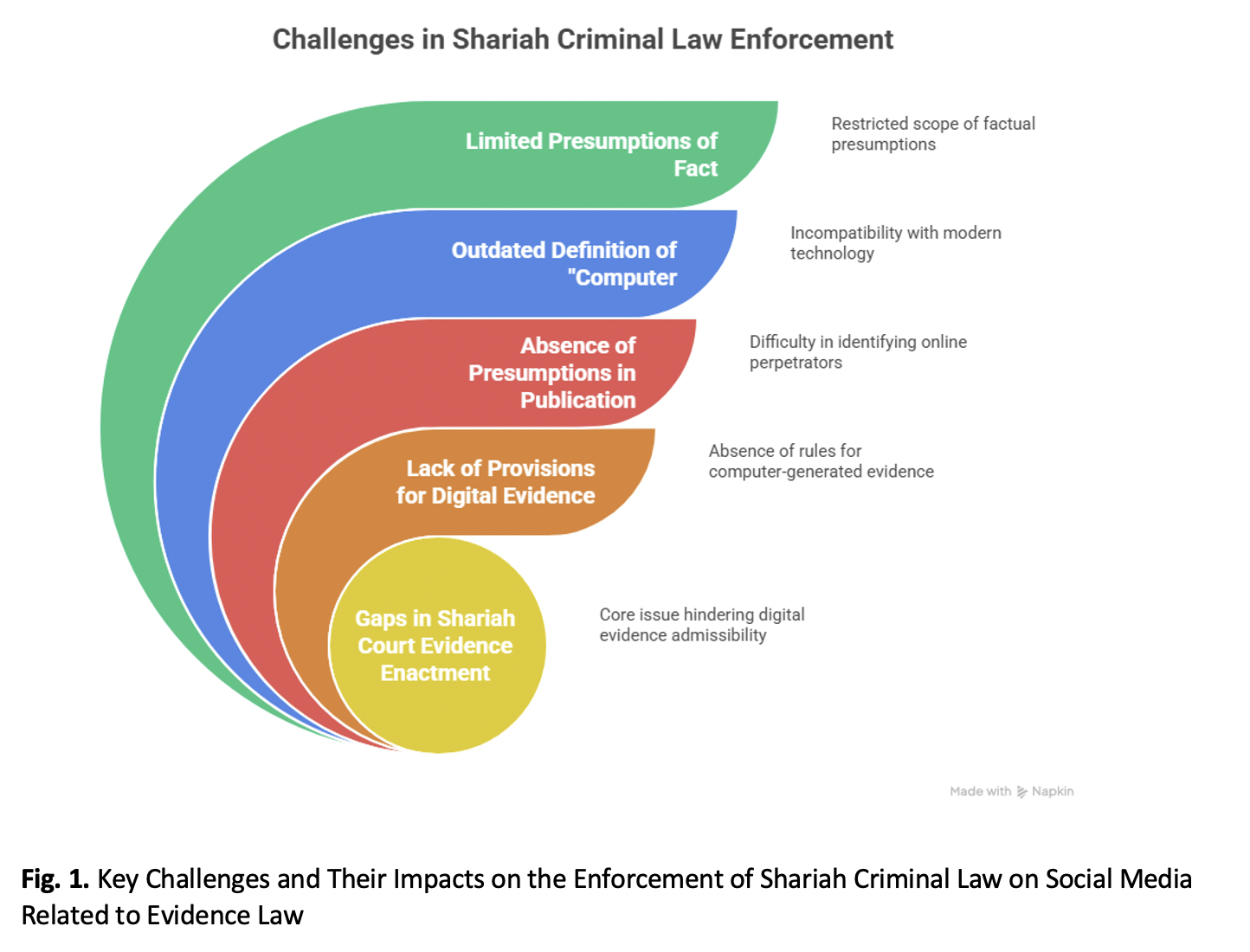Challenges in the Enforcement of Syariah Criminal Law on Social Media in Malaysia: A Review from the Perspective of Syariah Evidence Law
Keywords:
Syariah criminal law, social media, syariah evidence law, digital evidence, legislative amendmentAbstract
The widespread use of social media has transformed the global communication landscape, making the sharing of information more accessible. However, it has also introduced new challenges in the enforcement of laws. The enforcement of Syariah criminal law serves as a key mechanism for safeguarding the welfare of Muslims in Malaysia. Nonetheless, its implementation faces significant obstacles in this era of borderless technology, particularly with the pervasive use of social media. Syariah criminal offences committed via social media encompass a variety of issues, including offences against the faith such as the dissemination of deviant teachings, religious defamation and the spread of doctrines contrary to Islamic teachings. While these offences contravene Syariah principles, enforcement is often hindered by various challenges, particularly those related to evidentiary law. These challenges render the enforcement of Syariah criminal law misaligned with contemporary technological advancements. This study aims to analyse the enforcement of Syariah criminal offences committed on social media and to identify the challenges encountered, particularly from the perspective of evidentiary law. Furthermore, it seeks to propose recommendations to address the issues identified. A qualitative, doctrinal approach was adopted for this research. Data were collected through library-based research, drawing from sources such as books, journal articles, statutory provisions and both reported and unreported cases. The data gathered was analysed using content and descriptive analysis methods. The findings reveal that gaps in the Syariah Evidence Law and outdated legal provisions constitute major obstacles to the effective enforcement of Syariah criminal law on social media platforms. Consequently, this study recommends that the legislative body take immediate steps to amend the existing evidentiary laws. Such amendments are essential to ensure that the enforcement of Syariah criminal law on social media is aligned with technological developments and becomes more effective in addressing contemporary challenges.Downloads



















